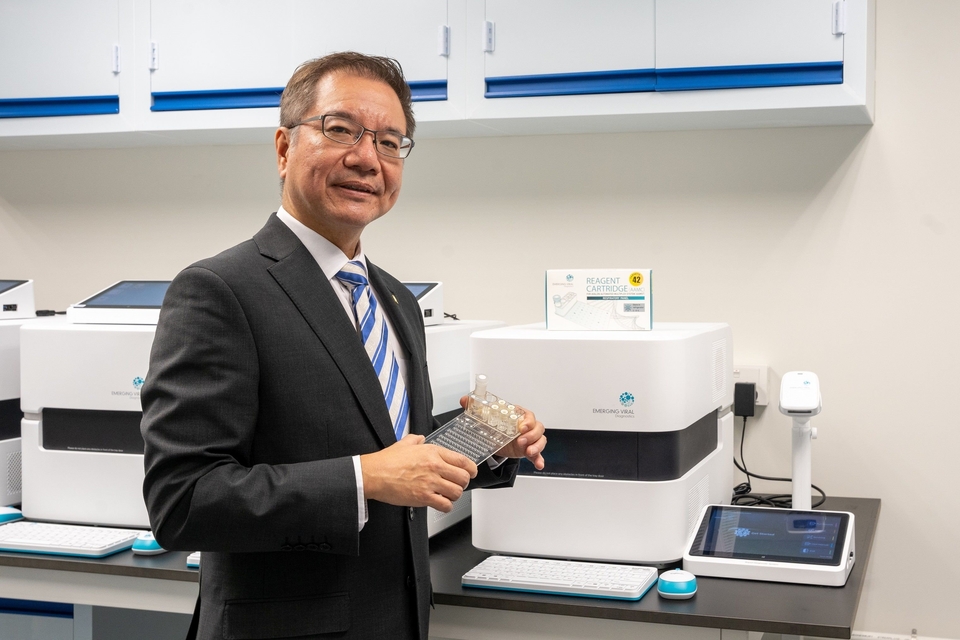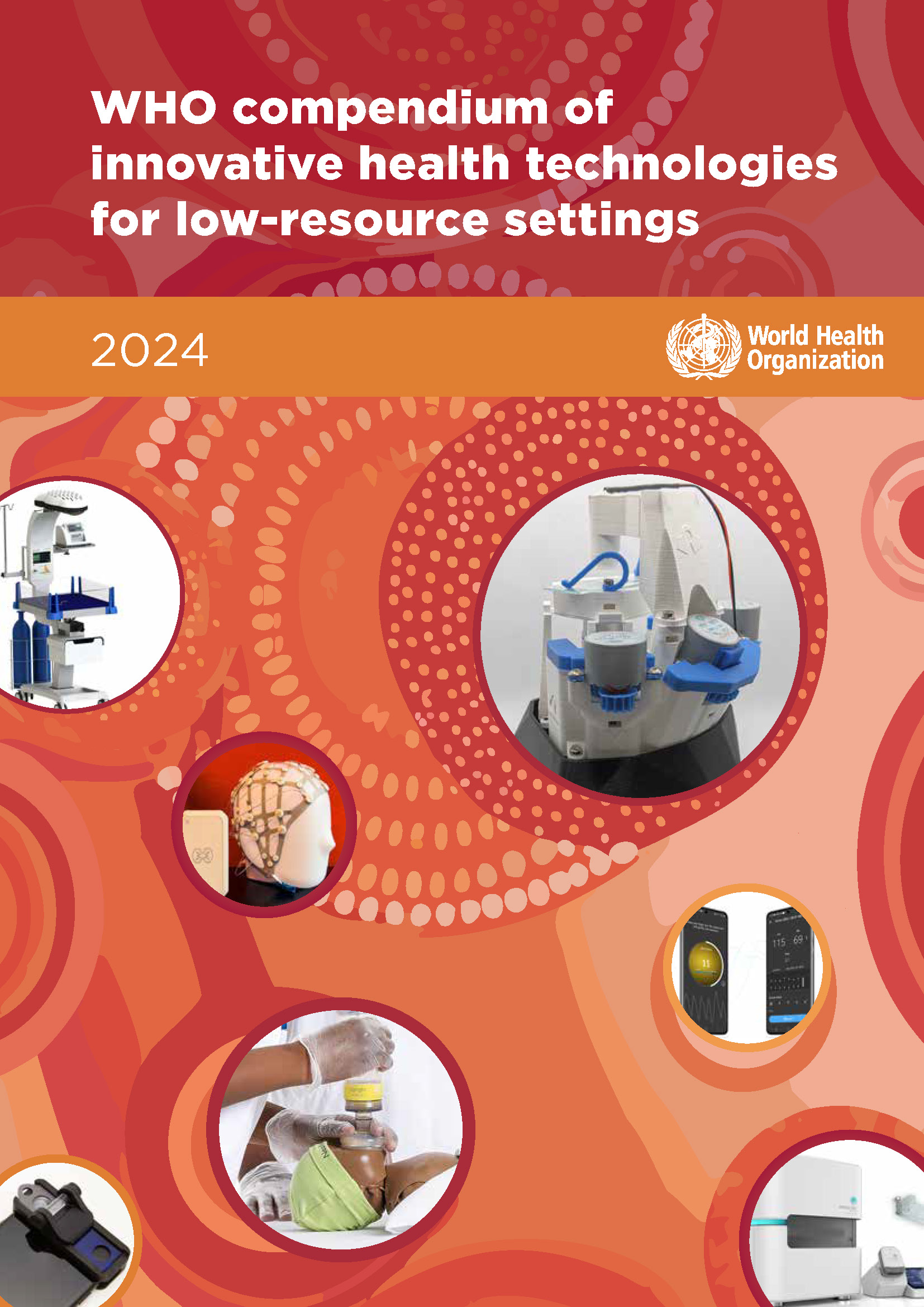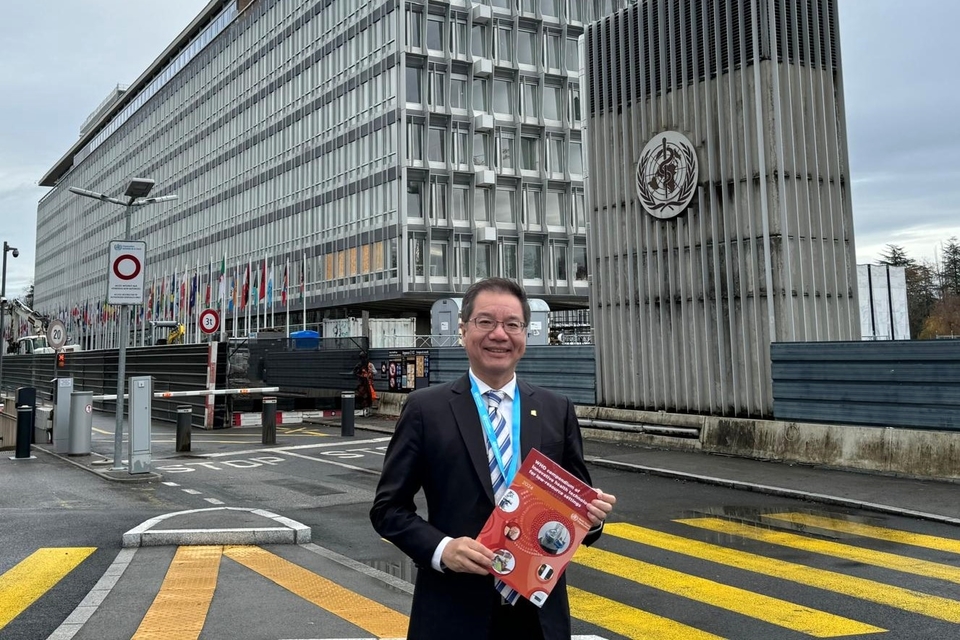DISCOVER HKBU
Innovative Automated Multiplex Diagnostics System receives WHO recommendation
31 Dec 2024
The Automated Multiplex Diagnostics System, developed by Professor Terence Lau, Interim Chief Innovation Officer of HKBU, has received notable recognition for being recommended by the 2024 Compendium of Innovative Health Technologies for Low-resource Settings by the World Health Organization (WHO). This accolade highlights the Sytem’s potential to significantly enhance health systems in low- and middle-income countries, and improve their access to appropriate, affordable, effective, and safe healthcare technologies to tackle infectious diseases.
Facilitating rapid detection of multiple pathogens
This pioneering system enables the automated detection of 42 respiratory pathogens, including 28 viruses, 11 bacteria and 3 fungi, in less than 1.5 hours without the need for a resource-intensive laboratory, multiple equipment, or specially trained technicians while maintaining superior sensitivity and specificity.
The System comprises an analytical machine, a microfluidic reagent cartridge, and software, allowing for simultaneous testing of multiple pathogens. This innovative design not only enhances efficiency but also significantly reduces the turnaround time for diagnostics, a crucial factor in managing public health.
With a Technology Readiness Level (TRL) of 8, the System has undergone large-scale testing leading to regulatory approval with further evidence generated, positioning it close to market readiness (TRL 9). This classification indicates that it is well-prepared for adoption in healthcare facilities.
Promoting equitable healthcare access
The System is invented by a local research team led by Professor Terence Lau, with the support of Professor Yuen Kwok-yung, Managing Director of the Centre for Virology, Vaccinology and Therapeutics, and a private company. With ISO 13485 accreditation for its production sites in Hong Kong and the Mainland, the System is now being supplied to hospitals and clinics.
“The System can identify infectious diseases and even non-communicable diseases, and is suitable for other non-medical applications. With the support from the Research, Academic and Industry Sectors One-plus Scheme (RAISe+) from the Innovation and Technology Commission, we target to develop multiple applications to further advance the System to make it smaller, faster and more cost effective,” said Professor Lau.
“With this System, we will be able to provide a comprehensive solution that can eventually promote equitable access and decentralised testing for an effective and high-quality healthcare system which WHO emphasises,” he added.


